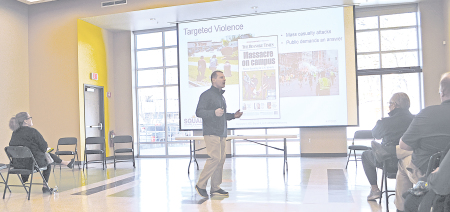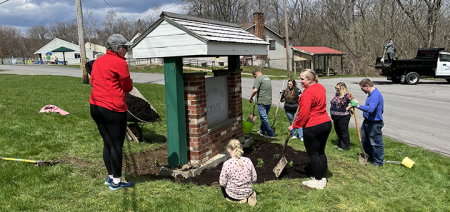Rep. Tenney Releases New Report On Economic And Social Opportunity In Upstate New York
Published:
December 10th, 2021
 Congresswoman Claudia Tenney. (NY-22)
Congresswoman Claudia Tenney. (NY-22)
NEW YORK – Congresswoman Claudia Tenney (NY-22), member of the House Small Business Committee and long-time small business owner, released a congressional report titled, Community Opportunity: A Vision for Renewal.
This report includes findings from a months-long survey Tenney launched in September seeking feedback on the challenges and opportunities facing our businesses and community.
The report also includes an analysis of economic trends in NY-22, provides a vision for restoring the region’s proud manufacturing legacy, and details concrete policy changes Tenney is fighting for in Congress to reinvest in American manufacturing.
“I am honored to present the Community Opportunity: A Vision for Renewal report, which details key findings from my meetings with local businesses, results from my comprehensive Community Opportunity Survey, and a deep dive into the most critical policies I am supporting in Congress to empower and restore our region’s historic manufacturing base,” said Congresswoman Tenney.
“Twenty years ago, politicians in Washington started to put corporate interests ahead of American interests. They shipped American jobs overseas, made it harder to invest in domestic manufacturing, and increased burdensome regulations. These policies significantly harmed great American manufacturing hubs like ours across Central New York and the Southern Tier. Now, the research and data are clear: the key to restoring our region lies in re-shoring domestic manufacturing, aligning the workforce with the needs of local businesses, and using public policy and private action to encourage broadly shared economic and social prosperity.
“I want to thank the nearly 2,000 residents of New York’s 22nd District who provided their feedback. I hope you will take time to review this report and the insight it provides into the opportunities and challenges facing our community. I am laser-focused on building an economy that works for everyone and know we can accomplish this together,” Tenney concluded.
Key Findings from Tenney’s Report:
More than 2,000 residents and small businesses in New York’s 22nd Congressional District responded to the Community Opportunity Survey. Of those respondents, nearly 63% of individuals and 45% of small businesses surveyed said they considered leaving upstate New York in the last several years. Less than 40% of individuals stated they are satisfied with employment opportunities in our area.
Nearly every business surveyed (90%) reports experiencing higher costs than in past years and nearly 80% of those businesses stated they have had to pass along those costs to consumers. 73% report experiencing supply chain disruptions that impact their business operations. Of this number nearly 52% are for foreign goods that do not have readily accessible domestic alternatives.
]Between 1965 and 2000, U.S. manufacturers employed roughly 17 million Americans before a precipitous drop around the turn of the millennium. In NY-22, however, the decline began earlier, pressed on for longer, and did not stabilize following the Great Recession.
The share of jobs in Utica in the manufacturing sector fell from 26.5% in 1970 to just 7.9% in 2016. At a time when national medium household income rose by nearly 50%, the median household income in Oneida and Herkimer counties, which comprise the Utica-Rome metropolitan area, fell by 1%. Median household income in Broome County, home to Binghamton, tumbled by an even greater share—10% over that same period.
The decline in manufacturing jobs experienced by NY-22 and so many other regions of the country is the result of deliberate policy decisions that have been made over the years. Trade, regulatory, and tax policies have punished production and physical investment in manufacturing and given foreign importers an advantage over American manufacturers and producers.
Thankfully, just as bad policies contributed mightily to the present condition, good policies can contribute to restoring prosperity to our region. It is time for lawmakers to reassess policies that support struggling regions of the United States and implement innovative policies to empower the creation of durable growth, in which contributions to production are given equal value to consumption.
I am fighting in Congress for policies that harness the power of private enterprise to reverse the harmful trends over recent decades. There are three primary things I am working to do: (1) expand government-backed investment for manufacturing industries; (2) increase domestic production requirements for critical goods; and (3) reorient international organizations toward American interests.
Comments








